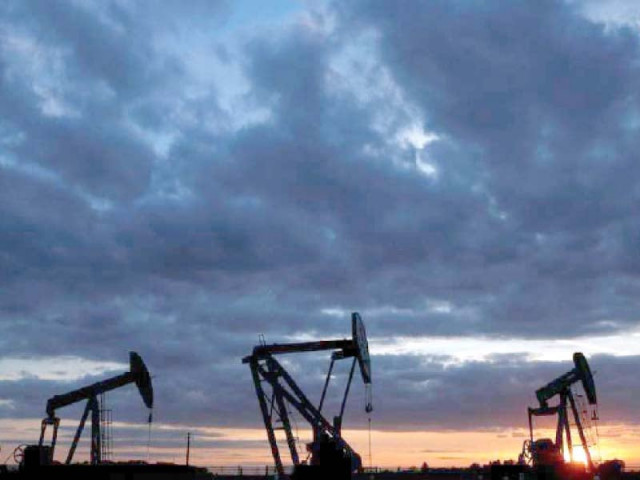Energy sector’s woes mount
It faced heavy losses as pandemic sapped consumer demand

Like many other sectors of the economy, the performance of Pakistan’s energy industry remained unimpressive in 2020 as Covid-19 plagued the entire world as well as left its crippling impact on the country’s economy.

In the energy industry, oil, gas and power sectors got a major hit with the pandemic slowing down economic activities across the world and also in Pakistan due to lockdowns. It not only hit hard business activities but also disrupted oil and gas supply chains, which resulted in thin demand and consumption.
During the year, oil and gas prices crashed, dealing a blow to producers but at the same time providing a big opportunity to importers like Pakistan.
However, the country could not be able to capitalise on the situation in the absence of good management practices and lack of storages. Rather, the consumers faced the worst oil crisis in June.
Regional countries like India, Bangladesh and China took benefit of the oil price slump but Pakistan may be the only country that slapped ban on oil imports.
Still, the domestic oil, gas and power sectors suffered losses. Similarly, a decrease in supplies and marketing of liquefied petroleum gas (LPG) caused a loss of around Rs70 million in April.
Refineries
The lockdown in the wake of Covid-19 outbreak sparked a meltdown in Pakistan’s refinery sector in the shape of sharply lower sales and a steep decline in petroleum product prices, resulting in huge inventory losses.
Owing to the economic slowdown, three refineries including National Refinery Limited (NRL) and Byco shut down their plants whereas other refineries curtailed production as demand dived. In a desperate move, they offered discounts to encourage oil marketing companies (OMCs) to lift their petroleum products.
The low production by the refineries also impacted the output of natural gas and crude oil in exploration fields.
The refineries reported an inventory loss of Rs34 billion due to Covid-19 in March and April 2020. Later, they posted a loss of about Rs17 per litre on production and sale of motor gasoline in June 2020. Because of the losses, the refineries were compelled to seek a bailout package from the government.
As three out of the country’s five refineries shut down in March and April 2020 because of thin demand for petroleum products, the government imposed a ban on imports, noting that OMCs already had adequate stocks.
OMCs and gas sector
Pakistan’s OMCs and gas companies booked a heavy loss of over Rs51 billion in April only following the spread of Covid-19 that sapped energy demand amid widespread lockdown in the country, sources say.
The number also included the revenue loss on account of petroleum levy, discount and oil and gas royalty. The upstream industry, which comprises oil and gas exploration, drilling and production, suffered a loss of Rs15.5 billion.
Midstream activities, which include refineries and liquefied natural gas (LNG) terminals, also encountered losses as business slowed down under the Covid-19 lockdown.
OMCs suffered inventory losses to the tune of Rs9 billion per month, which resulted in a reduction in government revenue by around Rs4 billion per month on account of petroleum levy.
They also impacted government revenue on account of windfall levy and discount on crude to the extent of Rs6 billion per month.
Moreover, due to reduced offtake of regasified LNG, demurrages on LNG imports accumulated to $650,000 in March 2020 and those charges were faced in April as well due to the lockdown.
Downstream activities comprise transmission and distribution of natural gas and LPG by Sui Southern Gas Company (SSGC) and Sui Northern Gas Pipelines Limited (SNGPL), and OMCs’ operations.
SSGC’s revenue loss was calculated at Rs215 million per day in March 2020, which jumped to Rs314 million per day in April.
On the other hand, SNGPL’s revenue took a hit of Rs324 million per day in March and it escalated to Rs430 million per day in April due to lower demand for natural gas and regasified LNG. Overall, SSGC booked a loss of Rs9.4 billion whereas SNGPL lost Rs12.9 billion in the wake of reduced gas consumption.
Power sector losses
The Covid-induced lockdown hit the energy sector hard as revenue collection plunged 47% in the power sector in March alone.
Cash shortfall in the face of less recovery of electricity bills from consumers, thin demand, payment of subsidies, non-passing of costs and losses resulted in payment of Rs67 billion by the Central Power Purchasing Agency (CPPA) to power sector entities against bills of Rs126 billion, which accounted for 53% of the total.
The recovery of electricity bills from end-consumers declined to 85% in March 2020 compared to 94% in March 2019. Remittance to the CPPA dropped 11.3% from the power distribution companies. Electricity consumption by industrial and commercial sectors dipped 25% and 27% respectively.
The ruling Pakistan Tehreek-e-Insaf (PTI) government had set an ambitious target of slashing the circular debt to zero in the power sector by December 2020. However, the debt pile continued to swell and touched Rs2.4 trillion in 2020 as opposed to Rs1.6 trillion in 2019.
The energy price crash in world markets was a huge opportunity to stave off losses through forward booking of oil and LNG imports. The cabinet too had tasked the finance ministry to take advantage of the slump in international oil prices by striking hedging deals. However, the finance and petroleum ministries failed to reap dividends and were unable to finalise hedging contracts.
Now, oil prices have gone up again. Consumers were denied the benefit of low rates, instead, they faced the worst oil crisis.
LNG tenders
In the LNG sector, Pakistan LNG Limited (PLL) struck spot deals at higher prices but suppliers did not show interest in early January delivery due to rising global demand.
Mismanagement and poor governance continued to mar LNG imports, which deprived consumers of the benefit of price slump. Rather, they were forced to consume gas at higher prices.
The private sector had long strived to enter the LNG market but bureaucratic hurdles and monopoly of gas utilities stood in its way. It could have provided an opportunity to import LNG at cheaper rates and create competition in the gas market. Later in the year, the government permitted the private sector to import LNG.
In terms of capital injection, the energy sector did not clinch any major deal for foreign investment. Rather, the government faced a setback when US energy giant ExxonMobil announced the windup of its business activities in Pakistan.
As energy demand grew, the Petroleum Division floated a tender for the auction of 10 exploration blocks in January 2020 but it did not receive any encouraging response. It again floated the tender to woo investors.
So, year 2020 did not prove to be encouraging as the country faced more miseries in the energy sector. It was unable to attract investment and any major improvement remained elusive.
Published in The Express Tribune, December 31st, 2020.
Like Business on Facebook, follow @TribuneBiz on Twitter to stay informed and join in the conversation.



















COMMENTS
Comments are moderated and generally will be posted if they are on-topic and not abusive.
For more information, please see our Comments FAQ